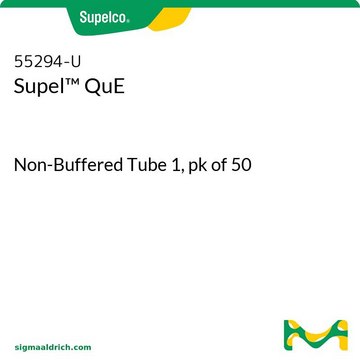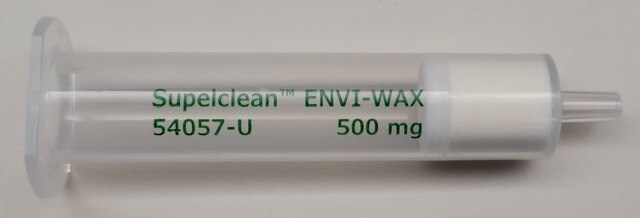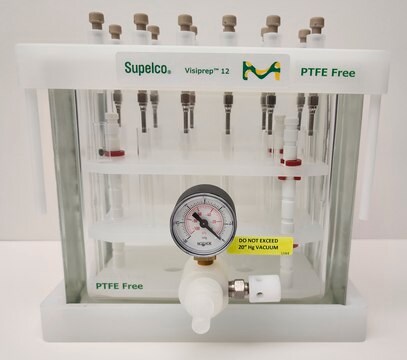55295-U
Supel™ QuE QuEChERS tube
Non-Buffered Tube 2, pk of 50, suitable for PFAS testing
Synonym(s):
QuEChERS
About This Item
Recommended Products
product name
Supel™ QuE, Non-Buffered Tube 2, pk of 50, suitable for PFAS testing
material
polypropylene tube
Agency
suitable for EPA ACB B21-02
suitable for EPA ACB B23-05b
reg. compliance
suitable for FDA C-010.02
product line
Supel™
composition
magnesium sulfate, 6 g
sodium chloride, 1 1/2 g
packaging
pk of 50
technique(s)
QuEChERS: suitable
centrifuge tube volume
15 mL
application(s)
food and beverages
Looking for similar products? Visit Product Comparison Guide
General description
Using the QuEChERS method, food/agricultural samples are first extracted with an aqueous miscible solvent (e.g., acetonitrile) in the presence of high amounts of salts (e.g., sodium chloride and magnesium sulfate) and/or buffering agents (e.g. citrate) to induce liquid phase separation and stabilize acid and base labile pesticides, respectively. Upon shaking and centrifugation, an aliquot of the organic phase is subjected to further cleanup using SPE. Unlike traditional methods using SPE tubes, in dispersive SPE, cleanup is facilitated by mixing bulk amounts of SPE (e.g., Supelclean PSA, ENVI-Carb, and/or Discovery DSC-18) with the extract. After sample cleanup, the mixture is centrifuged and the resulting supernatant can either be analyzed directly or can be subjected to minor further treatment before analysis.
Supelco carries a line of vials and centrifuge tubes containing pre-determined amounts of salts and SPE sorbents to support the most common method configurations used today.
Legal Information
Storage Class Code
11 - Combustible Solids
WGK
WGK 1
Choose from one of the most recent versions:
Already Own This Product?
Find documentation for the products that you have recently purchased in the Document Library.
Articles
Tetrahydrocannabinolic acid A solution, 1.0 mg/mL in acetonitrile, ampule of 1 mL, certified reference material.
Protocols
Fast method for the cleanup, analysis, and quantification of aflatoxin M1 in milk samples to EU regulatory standards (0.025 μg/kg).
Potency testing in marijuana-infused edibles is an important problem that analytical labs are facing due to the complexity of the involved matrices. Concentration of active ingredients in these edibles can range from a few parts per million to 3.5 parts per thousand. This application demonstrates the extraction and HPLC-UV analysis of the active compounds.
Rapid potency testing of marijuana-infused edibles using LC/MS on a biphenyl stationary phase detected eleven cannabinoids.
Our team of scientists has experience in all areas of research including Life Science, Material Science, Chemical Synthesis, Chromatography, Analytical and many others.
Contact Technical Service






